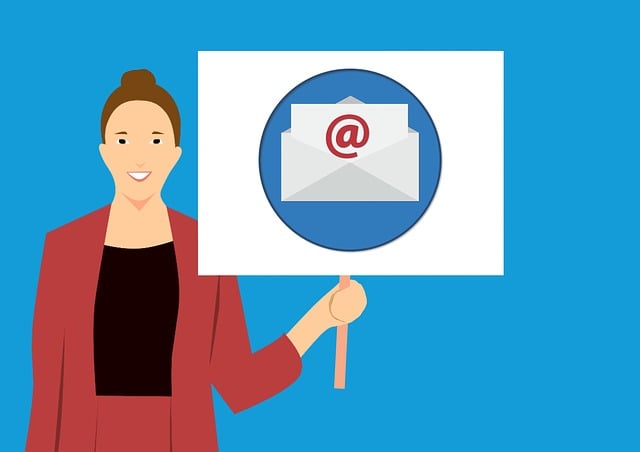Are you looking for a marketing strategy that can skyrocket your e-commerce business? Look no further than email marketing. It’s like a secret weapon in your arsenal, capable of reaching a vast audience and delivering targeted messages straight to their inboxes.
With email marketing, you can achieve unparalleled reach and targeting. Unlike other marketing channels, you have complete control over who receives your messages, ensuring that your efforts are focused on the right audience. Plus, it’s incredibly cost-effective, boasting a high return on investment (ROI) that can’t be ignored.
But that’s not all. Email marketing also offers personalization and customization options, allowing you to tailor your messages to individual customers. This helps build and nurture relationships, fostering trust and loyalty.
When it comes to driving sales and conversions, email marketing is a powerhouse. It’s been proven time and again that well-crafted email campaigns can have a direct impact on your bottom line.
And the best part? You can measure and track the results of your email marketing efforts, allowing you to make data-driven decisions and optimize your strategy for even better performance.
So, if you’re ready to take your e-commerce business to new heights, it’s time to harness the power of email marketing. Get ready to see the benefits for yourself.
Key Takeaways
- Email marketing is a cost-effective strategy for e-commerce businesses, delivering a high return on investment (ROI).
- Personalized emails with data-driven strategies and customer segmentation can enhance customer satisfaction and loyalty.
- Email marketing allows businesses to build and nurture stronger customer relationships, leading to brand advocacy and loyalty.
- Email campaigns provide measurable and trackable results through real-time analytics, enabling businesses to identify successful campaigns and make adjustments.
Increased Reach and Targeting
Email marketing allows e-commerce businesses to not only expand their reach, but also precisely target their desired audience, resulting in higher conversion rates and a more personalized customer experience. By leveraging email campaigns, businesses can enhance customer engagement, building stronger relationships with their audience.
Through personalized emails, businesses can deliver relevant content, tailored offers, and exclusive promotions, increasing customer satisfaction and loyalty. Moreover, email marketing provides an opportunity to improve brand awareness by consistently exposing customers to the business’s messaging and values.
With strategic segmentation and targeted messaging, businesses can ensure that their emails are reaching the right people at the right time, maximizing the impact of their marketing efforts. This increased reach and precise targeting sets the stage for the subsequent section on the cost-effectiveness and high ROI of email marketing.
Cost-Effectiveness and High ROI
Surprisingly, you’d be hard-pressed to find a more cost-effective and high ROI strategy than email marketing for your online store. In today’s competitive e-commerce landscape, it’s crucial to implement cost-saving strategies, and email marketing fits the bill perfectly.
Not only is it affordable, but it also delivers impressive returns on investment. According to a study by DMA, the average ROI for email marketing is $42 for every $1 spent. This makes it one of the most effective marketing techniques available to e-commerce businesses. By leveraging email campaigns, you can reach a wide audience at a fraction of the cost compared to traditional advertising methods. This cost-effectiveness allows you to allocate more resources to other crucial areas of your business.
Now, let’s explore the personalization and customization options available within email marketing.
Personalization and Customization Options
One of the most compelling aspects of utilizing email marketing for online stores is the ability to tailor and customize messages to individual customers, creating a personalized and engaging experience. By using data-driven strategies and customer segmentation, e-commerce businesses can send targeted emails that are relevant to each customer’s preferences and behavior. This level of personalization not only increases the chances of conversion but also enhances customer satisfaction and loyalty.
To illustrate the power of personalization, let’s consider a hypothetical example. In the table below, we compare two emails sent by an online clothing store. The first email is a generic promotion, while the second email is personalized based on the customer’s previous purchases and browsing history:
| Generic Email | Personalized Email |
|---|---|
| "Check out our new collection!" | "Get 20% off your favorite brand!" |
| Sent to all subscribers | Sent to customers who previously bought similar products |
| Low open and click-through rates | High open and click-through rates |
As you can see, the personalized email outperforms the generic one in terms of engagement. This highlights the importance of utilizing data-driven strategies and customer segmentation in email marketing.
By personalizing your email campaigns, you can build and nurture stronger customer relationships. [Transition to the next section.]
Building and Nurturing Customer Relationships
Creating personalized and customized email campaigns allows online stores to forge meaningful connections with their customers, fostering a sense of loyalty and trust that is as strong as the bond between a tailor and their most valued client.
By tailoring content to individual preferences, needs, and purchase history, e-commerce businesses can provide a personalized experience that makes customers feel valued and understood. This level of personalization not only enhances customer satisfaction but also increases customer loyalty and brand advocacy.
When customers feel a strong connection with a brand, they’re more likely to recommend it to others and become brand advocates themselves. Building and nurturing customer relationships through email marketing is a powerful way to cultivate a loyal customer base that will not only support your business but also spread the word about your products or services.
This strong foundation of customer loyalty and brand advocacy sets the stage for the subsequent section about driving sales and conversions.
Driving Sales and Conversions
Boost your online sales and increase conversions by implementing effective email strategies that target your customers’ preferences and needs.
Email marketing is a powerful tool that can significantly impact your e-commerce business, improving customer retention and enhancing brand awareness.
By sending personalized and relevant emails to your subscribers, you can create a sense of loyalty and trust, encouraging repeat purchases and increasing customer lifetime value.
Additionally, email campaigns allow you to showcase new products, offer exclusive discounts, and provide valuable content that drives traffic to your website.
With the ability to track open rates, click-through rates, and conversion rates, you can measure the success of your email campaigns and make data-driven decisions to optimize your strategies.
By leveraging the benefits of email marketing, you can achieve measurable and trackable results that drive your e-commerce business forward.
Measurable and Trackable Results
Achieve astounding and actionable analytics by implementing email strategies that allow you to track triumphs and transform your e-commerce empire. Email marketing provides real-time analytics, giving you valuable insights into your campaign’s performance. With email automation, you can easily track metrics such as open rates, click-through rates, and conversion rates. This data enables you to understand your customers’ behavior and preferences, allowing you to make data-driven decisions to optimize your email marketing efforts. By monitoring these metrics, you can identify which email campaigns are driving the most sales and conversions, and make adjustments to improve your results. Additionally, through email automation, you can segment your audience and personalize your messages, further enhancing your chances of success. Take advantage of the measurable and trackable results that email marketing offers to drive your e-commerce business forward.
| Metric | Key Takeaway |
|---|---|
| Open Rates | Measure subject line effectiveness |
| Click-Through Rates | Gauge the interest and engagement of recipients |
| Conversion Rates | Track the effectiveness of your call-to-action |
| Bounce Rates | Assess the quality of your email list |
| Unsubscribe Rates | Identify opportunities for improvement |
Frequently Asked Questions
How can email marketing help e-commerce businesses increase their reach and target specific audiences?
To increase your e-commerce business’s reach and target specific audiences, leverage email marketing analytics and best practices for email automation.
By analyzing data from your email campaigns, you can gain insights into customer behavior, preferences, and engagement levels. This enables you to tailor your email content and offers to resonate with your target audience, resulting in higher open rates, click-through rates, and conversions.
Automated emails based on user actions or triggers further enhance the personalization and effectiveness of your campaigns.
What are some strategies for maximizing cost-effectiveness and achieving a high return on investment (ROI) with email marketing?
To maximize engagement and increase open rates with email marketing, there are several strategies you can employ.
First, personalize your emails by using the recipient’s name and segmenting your audience based on their interests.
Second, craft compelling subject lines that grab attention and entice recipients to open the email.
Third, optimize your email design for mobile devices to ensure a seamless experience.
Lastly, analyze your data to identify what works and refine your email marketing strategy accordingly.
These tactics will help you achieve a high ROI and drive success for your e-commerce business.
Are there any limitations or challenges when it comes to personalization and customization options in email marketing for e-commerce businesses?
Personalization challenges and customization limitations can arise in email marketing for e-commerce businesses.
Personalization can be challenging due to the need for accurate data and segmentation. Limited customer information and incomplete profiles can hinder customization efforts.
Additionally, customization options may be limited by the email marketing platform’s capabilities or lack of resources.
However, overcoming these challenges is vital as personalized and customized emails have been shown to significantly increase engagement, conversion rates, and customer loyalty, ultimately driving higher ROI.
How can e-commerce businesses effectively build and nurture customer relationships through email marketing?
To effectively build and nurture customer relationships through email marketing, you need to leverage customer segmentation and email automation.
By segmenting your customers based on their preferences and behavior, you can tailor your email content to their specific needs and interests. This personalized approach increases engagement and drives conversions.
Additionally, using email automation allows you to send timely and relevant messages, ensuring that you stay top of mind for your customers. These strategies have been proven to boost customer loyalty and retention, leading to higher revenue for e-commerce businesses.
What are some key tactics for driving sales and conversions through email marketing campaigns in the e-commerce industry?
To drive sales and conversions through email marketing in the e-commerce industry, you need to focus on driving engagement and increasing open rates.
One effective tactic is to personalize your emails, addressing each recipient by their name. This creates a sense of connection and boosts open rates.
Additionally, using enticing subject lines and optimizing email content with persuasive language and compelling visuals can further drive engagement and ultimately lead to increased sales and conversions.
Conclusion
In conclusion, email marketing is a powerful tool for e-commerce businesses. It provides a multitude of benefits that can significantly impact your bottom line. With its ability to reach a wide audience and target specific customer segments, email marketing allows you to effectively personalize your messages and drive conversions.
The cost-effectiveness and high ROI of email marketing make it a no-brainer investment. Moreover, the ability to measure and track results provides valuable insights for future campaigns.
Don’t miss out on the opportunity to build strong customer relationships and propel your e-commerce business to new heights. Start harnessing the power of email marketing today.








